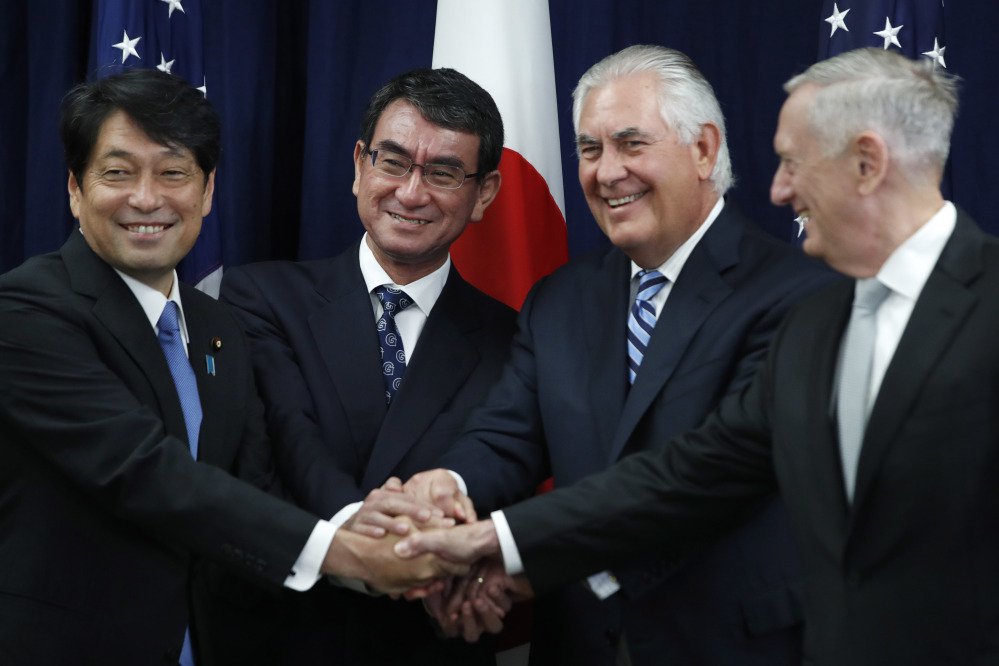The top U.S. diplomat and defense official moved again Thursday to clarify the Trump administration’s North Korea policy, making clear that it is focused on diplomatic and economic pressure, and that American military action is currently contemplated only in response to an attack by Pyongyang.
“In close collaboration with our allies, there are strong military consequences if DPRK initiates hostilities,” Defense Secretary Jim Mattis said, using the initials of the Democratic People’s Republic of Korea. “Very simply, in the event of a missile launch towards the territory of Japan, Guam, the United States, South Korea, we would take immediate specific actions to take it down.”
His remarks fell between President Donald Trump’s warning last week the U.S. was prepared to respond militarily to Pyongyang’s “threats” of an attack, and this week’s statement by chief White House strategist Stephen Bannon that North Korea was a “sideshow” with “no military solution.”
In the whirlwind of successive controversies and crises that have become the hallmark of the Trump administration, domestic strife in Charlottesville, Virginia, has quickly overtaken last week’s worry about war with North Korea.
But even as attention has rapidly shifted at home, partners in East Asia and beyond have continued to seek reassurance that the United States will defend them as vigorously as it will protect itself, if necessary, while refraining from initiating a shooting war on its own.
In Seoul on Thursday, South Korean President Moon Jae-in said he had received assurances from visiting Gen. Joseph Dunford Jr., chairman of the Joint Chiefs of Staff, that the United States would take no military action against North Korea without first getting his government’s agreement.
Dunford said that there was “no question” Seoul would be consulted and that “everything we do in the region is in the context of our alliance.”
In Washington, Mattis spoke alongside Secretary of State Rex Tillerson, with their Japanese counterparts, following a bilateral security meeting. Along with Dunford, they have repeatedly tried to inject calm and a sense of strategy into differing administration messages that have unsettled allies and the American public.
Contributing to the concern was Trump’s national security adviser, H.R. McMaster, who this month told a group of current and former senior U.S. national security officials and foreign policy experts that “preventive” war with North Korea was one of the “viable” military options under consideration.
The term is sometimes used interchangeably with “preemptive” action, although the latter refers more often to forestalling an imminent attack. Japan’s 1941 bombing of U.S. ships docked at Pearl Harbor is widely considered the classic example of a preventive operation.
McMaster, earlier on MSNBC, said Pyongyang’s possession of nuclear weapons capable of attacking the United States was “intolerable.”
Send questions/comments to the editors.



Success. Please wait for the page to reload. If the page does not reload within 5 seconds, please refresh the page.
Enter your email and password to access comments.
Hi, to comment on stories you must . This profile is in addition to your subscription and website login.
Already have a commenting profile? .
Invalid username/password.
Please check your email to confirm and complete your registration.
Only subscribers are eligible to post comments. Please subscribe or login first for digital access. Here’s why.
Use the form below to reset your password. When you've submitted your account email, we will send an email with a reset code.